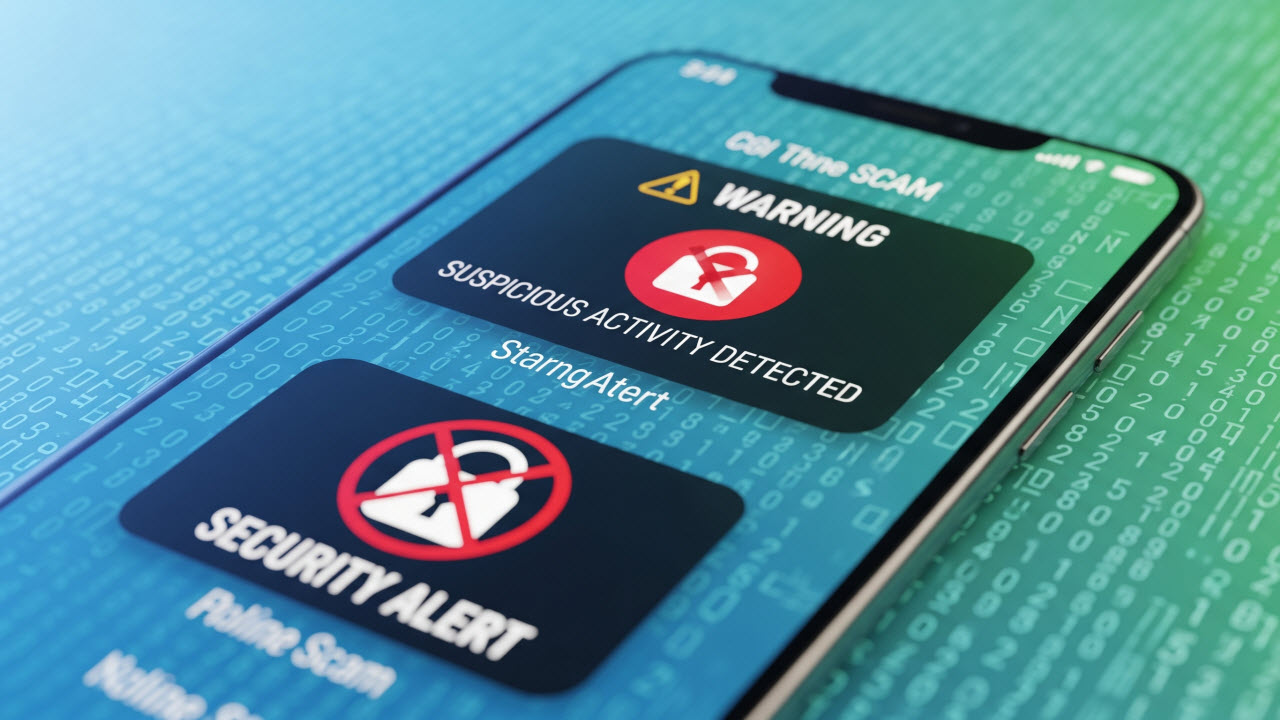Protecting Your Finances from Scams in a Digital World
In an age where scams are becoming more sophisticated by the day, Scripture reminds us that being cautious isn’t just wise—it’s an act of stewardship.

In an age where scams are becoming more sophisticated by the day, Scripture reminds us that being cautious isn’t just wise—it’s an act of stewardship. As believers, we’re called not to live in fear, but to walk in wisdom, especially when it comes to managing and protecting our finances.
Scams show up through every possible channel—phone, email, text, social media, and even through impersonation of people we know and trust. But with prayerful awareness and practical action, we can protect what God has entrusted to us.
1. Pause Before You RespondScammers prey on urgency. If someone pressures you to act immediately—whether it’s a call from a “bank” or a text about a compromised account—take a breath. Slow down. Hang up and call the official number on your card. Check the actual sender’s email. Urgency is a red flag.
2. Avoid Untraceable PaymentsNever send money via wire transfer or gift cards. No legitimate organization will ask for payment that way. Scammers use these methods precisely because they’re almost impossible to trace. If someone insists, walk away.
3. Shop with a Credit CardWhen shopping online, use a credit card instead of a debit card. Credit cards offer better fraud protection and limit your liability if something goes wrong.
4. Enable Two-Factor AuthenticationThink of two-factor authentication as a second lock on your digital front door. Even if a scammer has your password, they can’t access your account without a one-time code sent to your phone or email. Enable this on all financial accounts.
5. Use Strong, Unique Passwords Don’t reuse passwords. Instead, use a password manager like Bitwarden or NordPass to generate and store secure, unique passwords for each account. These tools offer free versions that are easy to use and an excellent first defense against hacking. 6. Monitor Your AccountsMost banks offer alerts for unusual activity, large transactions, or logins. Take advantage of these tools—they’re like financial alarm systems that help you catch fraud early before damage is done.
7. Freeze Your CreditOne of the most effective defenses against identity theft is a credit freeze. It’s free with all three major credit bureaus and can be lifted temporarily when needed. Think of it as placing a padlock on your credit file.
8. Avoid Public Wi-Fi for Financial TasksNever check your financial accounts on public Wi-Fi—whether at coffee shops, airports, or libraries. Wait until you’re on a secure, private connection. And avoid using public or borrowed devices for sensitive tasks.
9. Be Mindful on Social MediaOversharing can give scammers clues to your passwords or security answers. Keep your profiles private and think twice before posting birthdays, family names, recent purchases, or vacation details.
10. Shred Sensitive DocumentsOld-school identity theft still happens. Shred bank statements, tax forms, and anything with personal information before tossing them. Don’t give a scammer a reason to go digging through your trash.
11. Don’t Click Suspicious LinksHackers can hijack email or social media accounts and send phishing messages that seem legitimate. If something feels off—even from someone you know—reach out to verify before clicking anything.
12. Talk About It With Loved OnesScammers often target the most vulnerable individuals, particularly older adults and teenagers. Make this a family conversation. Share tips, updates, and warnings. Helping others stay informed is one more way to practice faithful stewardship.
13. Verify Identity Protection OffersIf you receive a letter or email offering free identity protection after a data breach, don’t click the links. Instead, go directly to the company’s official website or call their customer service number to confirm the offer.
Financial Faithfulness Includes Digital WisdomWe live in a digital world, and today, part of being a faithful steward includes guarding your online presence. That doesn’t mean living in fear—it means taking proactive, prayerful steps to protect what God has entrusted to you.
When we walk in wisdom, we honor the Lord. And when we protect our finances with care and intentionality, we reflect the character of our Provider.
One way to grow in financial faithfulness is by using the FaithFi app. It’s a secure, easy-to-use tool that helps you track your spending, plan your giving, and manage your finances with biblical wisdom. FaithFi uses 256-bit encryption to connect safely to your financial institutions and never stores your login credentials. With a FaithFi Pro account, you’ll also gain access to exclusive studies, articles, and daily encouragement. Because stewardship isn’t a solo mission, it’s a daily journey we take together—guided by God’s Word and supported by tools that help us live out our calling.Related Articles

February 3, 2026
Every Good Gift Comes From Above
When every good gift comes from God, how can we take credit for anything good in our lives? Rob West explores how we’re ...

February 3, 2026
The Hidden Cost of Sports Betting with Kyle Worley
Sports betting is exploding across the country. With online platforms, mobile apps, and aggressive marketing, it’s never...

February 2, 2026
Two Sons, One Generous Father
Few stories reveal the human heart quite like a family conflict over money. Rob West shares from the Parable of the Prod...